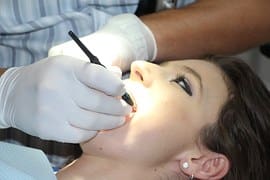Jan 3, 2024
Understanding Dental Anxiety: Overcoming Fear for Better Oral Health
For many, the mere thought of a dental visit conjures up feelings of unease or outright fear. Dental anxiety is a common sentiment that affects individuals of all ages, often preventing them from seeking the essential oral care they need. However, understanding this anxiety and discovering ways to overcome it can pave the way for a brighter, healthier smile without the looming fear.
Grasping Dental Anxiety

Dental anxiety isn’t uncommon. It’s an understandable apprehension that stems from various factors. Past negative experiences, fear of pain, a sense of loss of control, or even just the sights and sounds of a dental office can trigger anxious feelings. Private dentist Macclesfield understands the complexity of dental anxiety. They are often dedicated to creating a soothing environment tailored to alleviate these fears. Their approach goes beyond just providing dental care. It’s about fostering a calming atmosphere that caters to individual needs and concerns. This fear can result in avoidance of dental visits, leading to deteriorating oral health and potential complications down the line.
The Case of Dental Fear
The first step in overcoming dental anxiety is acknowledging it. It’s okay to feel anxious about dental visits, and many individuals share similar feelings. Communicating these fears with your dentist is crucial. Dentists are trained to handle anxious patients with empathy and can tailor their approach to alleviate concerns and create a more comfortable experience.
Trust and Communication
Establishing trust with your dentist is key. Take the time to discuss your fears and concerns before any procedure. This dialogue allows the dentist to explain procedures, address worries, and establish signals for breaks or pauses during treatments, empowering you with a sense of control.
Support and Professional Help
Seeking support from friends, family, or support groups can be immensely beneficial. Sharing experiences with others who have conquered their dental anxiety can provide encouragement and tips for managing fears. In some cases, seeking professional help from therapists specializing in anxiety can offer coping strategies to overcome dental phobia.
Relaxation Techniques and Distractions

Practicing relaxation techniques before a dental visit can significantly reduce anxiety. Deep breathing exercises, visualization, or listening to calming music can help ease nervousness. Additionally, distractions like watching a movie or listening to a podcast during the procedure can divert attention and create a more relaxed atmosphere.
Gradual Exposure and Desensitization
For those with severe dental anxiety, gradual exposure to the dental environment can help desensitize fears. Start with short, non-invasive appointments and gradually progress to more involved procedures as comfort levels increase. This gradual approach allows individuals to build confidence and reduce anxiety over time.
Dental anxiety doesn’t have to stand in the way of a healthy smile. By understanding the root causes of anxiety, communicating openly with your dentist, employing relaxation techniques, and seeking support, individuals can gradually overcome their fears. Remember, your dental team is there to support you on your journey to better oral health, ensuring a positive experience that fosters not just a brighter smile but also a sense of empowerment over dental anxiety.…
More DetailsOct 27, 2016
How To Recognize The Signs Of A Bad Dentist
Going to the dentist is bad enough. Having to deal with a bad one should not be a problem anyone needs to face. In this article, you will learn how to pick up the signs of a bad dentist fast.
A few signs of a bad dentist
No request for old dental records
The reason this is a warning because a dentist can look into your mouth but will not be able to see the work that has been done, meaning they could aggravate previous work that was just fine, to begin with. If they insist you have your amalgam fillings ousted, you should be on high alert. The FDA says they are not harmful if in place but removing may be dangerous. They release a gas when drilled out, and the procedure may even damage your tooth even more.
These dentists will tell you that you need a lot of treatments and surgeries just to get more work. They sometimes also recommend all the treatments etc. that your insurance covers. This may mean that they only give you what is good for their pockets and not what is good for you.
Using outdated equipment
Using old equipment is dangerous, that is why the newer methods have been developed. Using x-rays as an example. It gives a much clearer picture of the problem without exposing you to the huge amounts of radiation like film does.
They will not screen you for oral cancers
These cancers have been increasing drastically in the past 20 years because of the Human Papilloma Virus or HPV. Seeing one dentist being continually advertised, needs to be a warning as this could mean they lose patients all the time because of bad service. Advertising is one way of finding patients, but if it seems one is excessively focusing on that, there is a problem. They would not care much about hygiene in the workplace. This is a clear sign of a bad dentist as this practice could lead to infections which can lead to tooth loss.
They don’t display successful dental jobs in the practice
This coul d be because they haven’t had success in their procedures. If they can’t show you anything after you ask them to show you photos of procedure you have considered, be afraid. According to Baton Rouge Dentist practice, you should do the following if you spot one:
d be because they haven’t had success in their procedures. If they can’t show you anything after you ask them to show you photos of procedure you have considered, be afraid. According to Baton Rouge Dentist practice, you should do the following if you spot one:
- Politely pick up your bag and leave
- Look for someone who is not going to destroy your teeth, someone with a good reputation.
You visit them to save your teeth and by paying attention to the signs of a bad dentist above (there are others), that is what you’ll do.…
More Details
